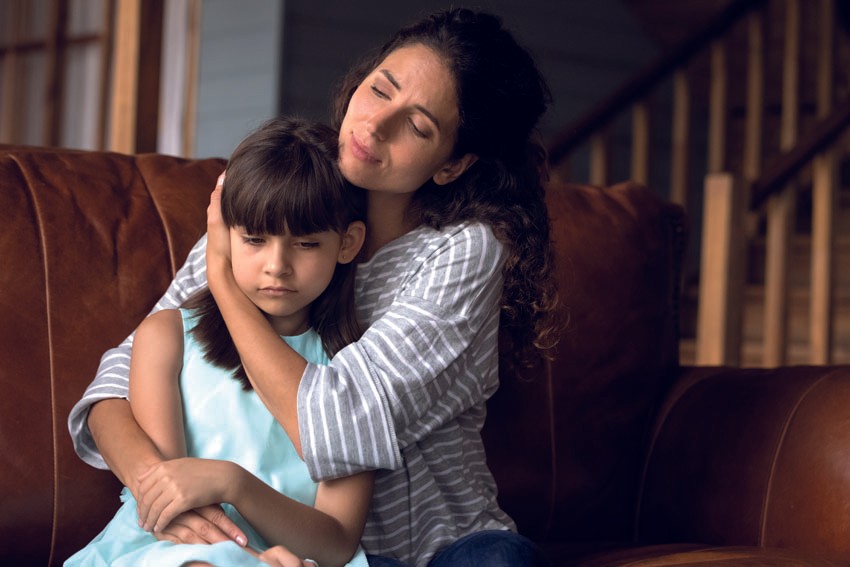Responsible Youth, Not Troubled Youth!
Responsible Youth, Not Troubled Youth!
No matter how old we are, what we need in times of trouble isn't someone to agree with us, but someone who will recognize what we're going through!
Those who have seen the painting "Raising a Child" by the Russian artist Andrei Popov will remember it. A fallen pencil, markings on the door frame indicating a child's height, and a scene where these lines turn into birds... In his work, Popov creates a magnificent reflection on the growth of children, how they differentiate as they grow, and how they become freer. For parents, letting go of the pencil that marks how much their children have grown is not easy at all. It's not easy to realize that they are not needed as much as before, to accept that the baby whose first steps they followed to prevent from falling has evolved into someone who no longer seeks help and advice as they grow older! But just as children cry not only because they leave their parents and homes when they start school, there are also parents who cry in the school corridor as much as their children after dropping them off. However, just as both the child and the parent get used to this situation after a few days, learn to trust each other, and learn to separate from each other with confidence, when those children grow up and become young adults, they still need to continue to work together on creating space and adapting.
Final Grade Starting our lives incapable of expressing and meeting even the simplest needs, we inevitably create a system in our minds focused on educating our children. Our babies come into this world new, helpless, and entrusted to us to guide and mentor them with our vast experiences. Naturally, we start with the alphabet, move on to multiplication tables, and to discipline and manners. As the pencil marks we throw on the wall rise; in other words, as our children learn, develop, and succeed, our grade in parenting also rises. We even want them to meet those we met later at an earlier age; we want them to walk not from our long and winding paths, but from shorter and more comfortable paths.
Parent Typologies Psychotherapist John Gottman categorizes parenting styles into four main groups in this context. The first is the "dismissive parent" who says, "Oh, come on, what's the big deal, you're exaggerating everything about modern youth." Ignoring tears, belittling ideas, disregarding feelings – all these come out with full aggression in such an approach during adolescence. The "disapproving parent," on the other hand, exhibits an attitude of rejecting all of the child's questioning and what they see as problems. According to this style, everything is spoiled, and the inner voice says, "We've seen so much, we haven't drowned in deep oceans; you're wailing in shallow waters." Then there's "Laissez-Faire Parenting" which is quite a sight! They don't interfere. They equate respecting their child's space and emotions with leaving them unsupported and alone.
The "emotion-focused parent," however, is aware of what their child is going through and the emotions they experience. They even see these emotions as an opportunity to connect with their child or strengthen the existing bond. Just like how God listens to His servants without judgment or questioning, they listen to their child in their own way, understand them. They even help their child understand themselves. They make it clear that they are always there, that they can help their child to the extent they want. In other words, there are parents who know themselves and their children very well in front of us. This parenting style, which reveres Ibn Khaldun's advice, "Do not try to educate your children. They will become like you anyway. Educate yourself," evaluates conflicts and triggers with the child as a means of self-understanding and development.
Feeling Good, Acting Right They start with "Before I became a parent, I was a perfect parent. There was no one better at solving people's problems with their children!" say New York Times bestselling authors Adele Faber and Elaine Mazlish in their book "How to Talk So Kids Will Listen & Listen So Kids Will Talk." But when they actually become parents, like everyone else, their emotions and thoughts change due to their experiences. Faber and Mazlish have a very simple claim: "If children feel good, they will act right." So how do children feel good? By accepting their feelings as they are. The problem here is that parents often prefer not to accept these feelings and equate accepting them with approval. They even try to decide what their children should feel or not feel. However, denying feelings can confuse children and make them angry. It can also lead them to distrust their own feelings. Parents who decide even their child's tiredness, sadness, or excitement, end up expecting the same child to grow up making their own decisions, being able to make the right choices, and taking responsibility for their choices.
For children to understand their feelings, they first need to be understood. And effective listening is needed for them to be understood. The first thing we need to accept here is that a person cannot simultaneously listen and plan what to
/ / / / / / / /

